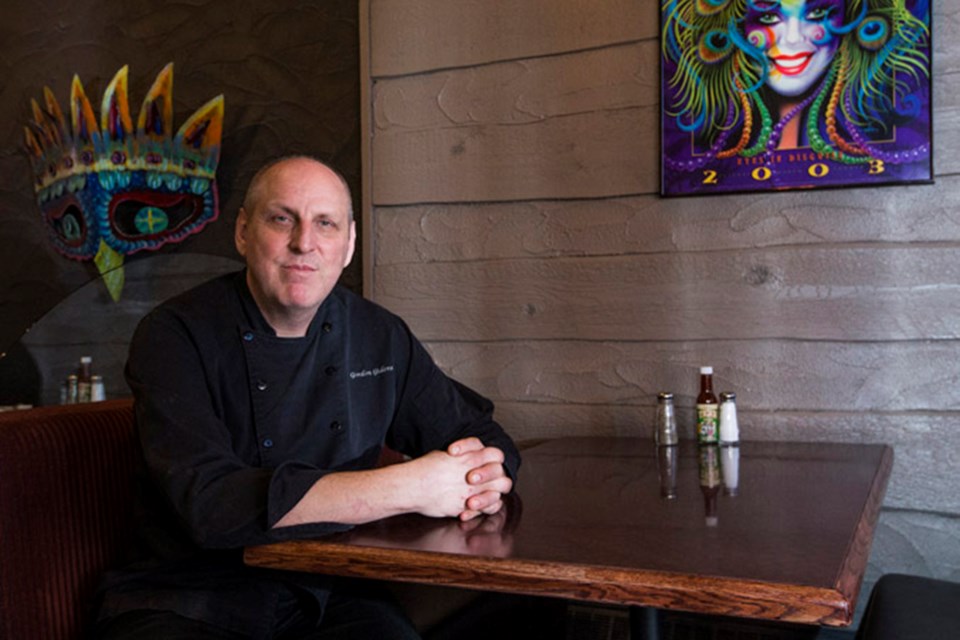There is no “one fork fits all” as St. Albert restaurants are taking different approaches to additional provincial restrictions announced by Alberta Premier Jason Kenney on Tuesday.
Some establishments such as XIX Nineteen are choosing to close dine-in service. Starting Friday, Nov. 27, the high-end restaurant will be offering only take-out and curbside pickup for the next two or three weeks.
In addition to operating at 50 per cent capacity and requesting guests wear masks, the new health guidelines stipulate a maximum of six people are permitted to sit at a table and they must reside at the same household.
“I feel very pressured. We are already having a tough time asking people to put on a mask and now you’re enforcing another rule on top. I just found it very difficult. What we normally do is provide hospitality. We’re not police and we’re not law enforcement," said XIX Nineteen chef/owner Andrew Fung in a statement.
Holly Estacio, assistant general manager, added XIX Nineteen will continue operating with a full staff roster, possibly resulting in reduced hours.
“We will still employ all our staff. Everyone will help with take-out. We anticipate servers will make phone calls, take orders, prepare packaging and run to the curbside,” said Estacio. “We want to make sure the safety and health of our staff and our guests is our top priority.”
Toast Breakfast & Lunch is also closing voluntarily for several weeks, beginning mid-day on Thursday, Nov. 26.
A staff member at the popular eatery who did not wish to be identified said, “We’re hoping it’s only going to be for a few weeks.”
Abhilash Nechikkat, co-owner of Flame Kitchen located in Campbell Park, stares at empty seats and states he and his partners are weighing the options.
“We’re going to see how it goes for a week and then make a decision,” said Nechikkat.
Flame Kitchen, a blend of Italian and East Indian cuisine, opened its doors in March as the pandemic arrived and people stayed home.
“It really affected business,” said Nechikkat. Fortunately, dine-in and pick-up service grew during the summer. However, this latest round of restrictions is already putting a dent in sales.
“We used to have a group that came in every Thursday morning, and today they didn’t. It’s been really quiet.”
Like Fung, Nechikkat is frustrated government guidelines are forcing restauranteurs to police guests.
“How can we ask their I.D? It’s a hospitality industry. It’s tough enough for us without having to ask if you are from the same family. I don’t know how to put that into practice. For a liquor store or grocery store, it’s easier. For us, it’s impossible.”
Despite the uncertain future, Nechikkat noted the new restrictions were necessary.
“We can’t blame the government. It’s all they can do. We have to stop the spread of COVID, but it affects people like us.”
While federal and provincial assistance is available to small businesses, Flame Kitchen is ineligible. Most assistance programs require businesses to provide receipts for at least one operational year.
“There’s no help for businesses that opened in 2020. It is sad to say there is no support from the government. And that is why we are struggling. It would be great if the government could help small businesses that started in 2020. There are many more people like us struggling to survive.”
He added, “Even if people just do pickup, it’s enough for us to survive.”
Over at Cajun House, a 28-year home-gown staple, co-owner/chef Gordon Gidora has seen it all – several economic downturns, high food prices and staff shortages. But COVID-19 is the new game in town and it’s unpredictable.
Following initial guidelines, he operates the Cajun and Creole restaurant at 50 per cent capacity with tables at a minimum of six feet apart. To keep the restaurant’s doors open, Gidora has reduced staff hours and increased his schedule.
“I can’t bring in full-time staff if I’m only making $100 a day,” said Gidora, who offers dine-in, take-out and curbside pick-up.
Describing this week’s clientele, he said, “Monday and Tuesday was not bad. Wednesday, it was really quiet.”
The Cajun House luckily received a federal government wage subsidy to offset costs. However, it was unable to initially secure rental assistance paid in part by three parties: the business, the landlord and government.
In October, the Canadian government announced measures to provide rental assistance directly to businesses, and in November it proposed extending the wage subsidy until June 2021.
For Gidora, government assistance is an aid that will keep a local institution and a lifetime of service from collapsing.
In the meantime, he is staying positive.
“Everybody be safe. Hope for the best in the New Year. Keep your heads up and be friendly.”



